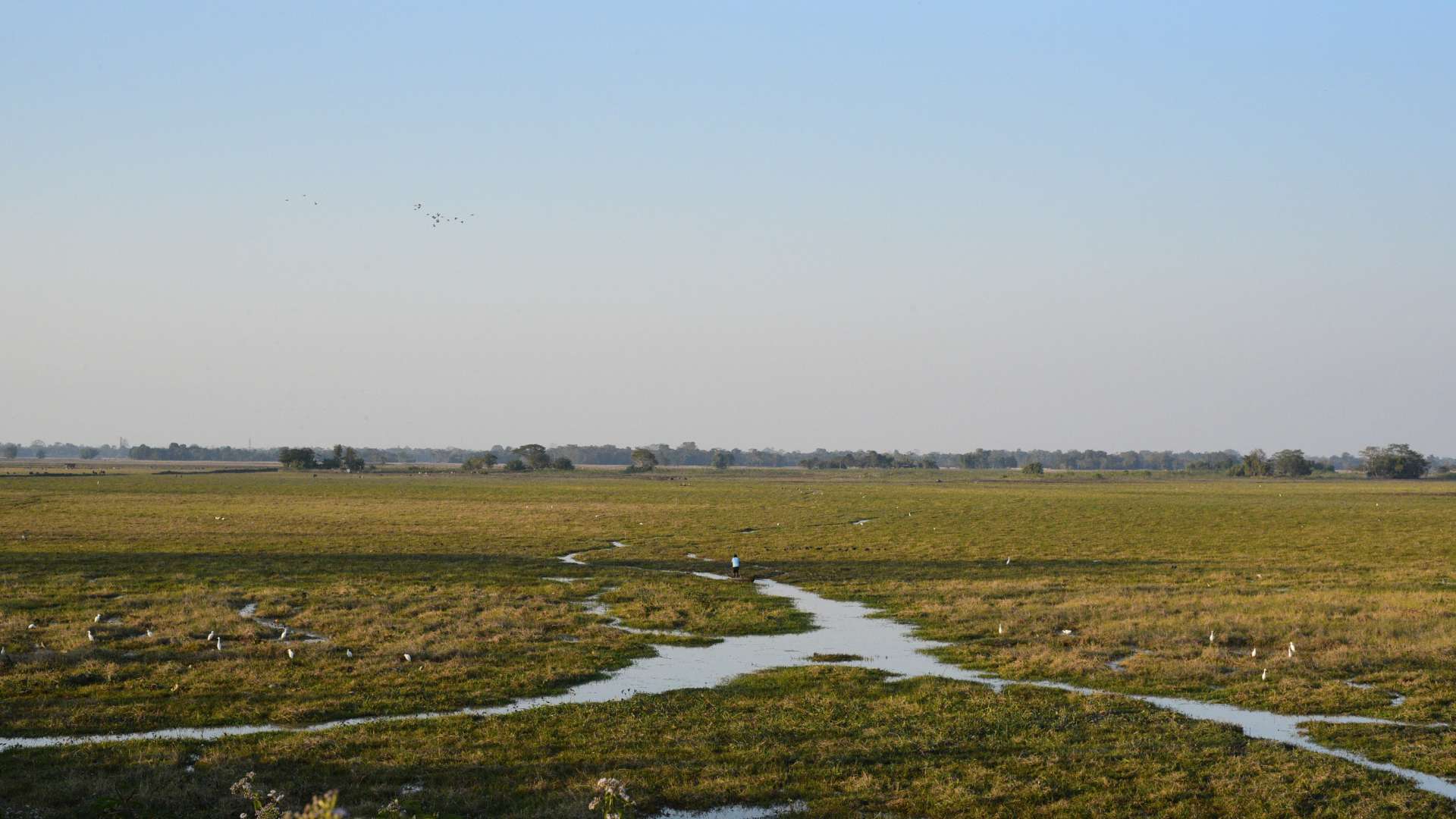
Majuli, the largest river island in the world, is created by the river Brahmaputra in the
south and southwest and its many tributaries in the north banks and has been an
important center of trade, culture, and religion for centuries in Assam.
In the 15th and 16th centuries, it became a center for the growth of the Neovaishnavism
movement, which was founded by the Assamese saint and reformer Srimanta
Sankardev. Sattras (monasteries) established by the revered reformer and his
disciplines, served as centers for religious study, worship, and cultural preservation and
also fostered the development of various forms of traditional art and literature in Assam.
The river island and its many Chaporis (surrounding islets) is home to many indigenous
communities including the Mising, the Deori, the Sonowal Kachari, and the Morans.
These communities have their own unique cultures, traditions, and customs, and have
played an important role in the island’s history. Despite the challenges they have faced,
these communities continue to maintain their traditional way of life and culture.
Recognising these factors along with the island’s vulnerability due to the river erosions,
Majuli has been designated as a UNESCO World Heritage site to preserve its rice
natural, cultural and religious heritage for future generations.
Three days is no doubt a short time to cover all that this 420 sq km island has to offer but we try and cover the best experiences for you, accompanied by a local guide.
In this short escape, you will be diving deep into the centuries-old traditions of Neovashnavism, visiting the major Sattras in the area – Uttar Kamalabari Sattra (known for Gayan Bayan performances), the Samaguri Sattra (where you will witness how traditional masks and costumes are made for Assamese dramas and theatre) and Dakhinpat Sattra. Enjoy a simple, wholesome meal made especially for you by the monks and take in the rich history and culture of Neovashnavism and its relevance in Assamese society today.
You will be also taking on a journey into the Mising community’s way of life – witness the Mising vernacular architecture and the purpose it serves, eat a nourishing traditional Mising meal accompanied with apong in a local home, learn about the alcohol-brewing process made with dozens of medicinal plants (sometimes over 100) and understand how Misings are deeply tied to their ancestral land, the river and its ecology.